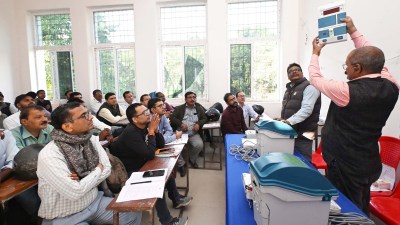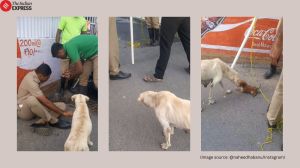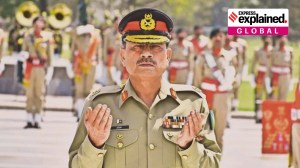Crowning glory
Delhi deliberately ignores its own founding moment as the capital of British India
In 1911,after announcing the annulment of Bengals partition,George V shifted the capital of British India from Calcutta to Delhi. He held a grand durbar to mark his own crowning,and introduce himself to his Indian subjects. Held at Delhis Coronation Park,the durbar was all about imperial razzle-dazzle 1911 was,after all,the apogee of the British empire though it was to be the last of its kind in India. It borrowed and repurposed Mughal courtly ceremony,as members of the military and administration,as well as Indian princes and rulers lined up,on bedecked elephants and horses and presented themselves to the throne,displaying their fealty to the empire. Sayajirao Gaekwad,the ruler of the princely state of Baroda,privately told Motilal Nehru that it would have been all right if we had not to act in it like animals in a circus.
This year,as Delhi begins a year-long celebration of its status as capital,this moment of its inauguration,the imperial durbar of December 12,1911,is an awkward matter. It was not freely chosen by a new,independent nation,but imposed by a distant authority. The culture ministry has chosen to elide the question,ignore the durbar as a colonial feat and simply celebrate the re-emergence of Delhi as the national capital of India as though the British were merely a blip in the ongoing story of India,and Delhi merely regained the central stature it always had. Besides,the culture ministry says,the shift was formally notified only in January 1912,and was a gradual process,and Delhi plans a whole year of exhibitions,seminars and events in remembrance and celebration.
At this safe distance,it is all right to acknowledge how the shadow of empire fell over some of this nations most formative decisions even if it doesnt call for celebration.



- 01
- 02
- 03
- 04
- 05




























